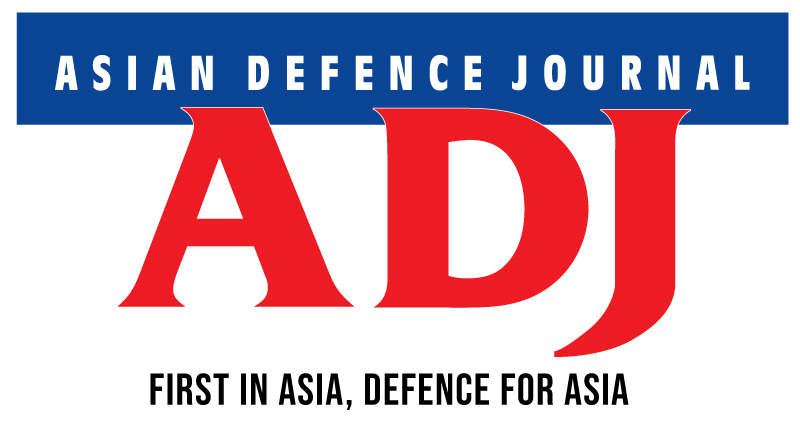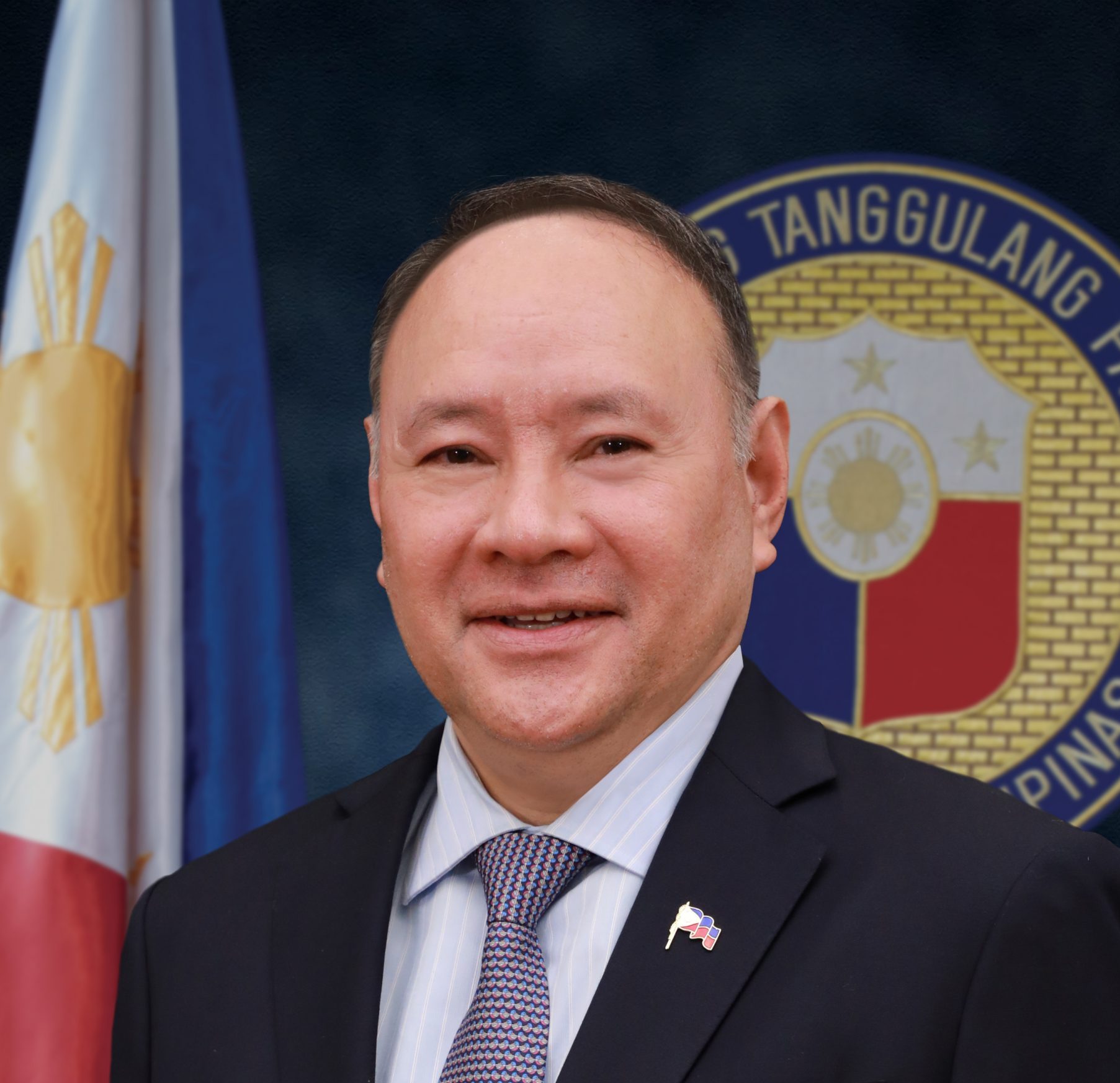Gilberto Teodoro Jr., Secretary of National Defense, Philippines
WITH a distinguished career in public service, the Secretary of National Defense (SND) of the Philippines, Gilberto Teodoro Jr. has been at the forefront of shaping the country’s defence and security policies during a critical period of geopolitical challenges. In this insightful interview with Asian Defence Journal, he shares his perspectives on the modernisation of the Armed Forces of the Philippines (AFP), strategic partnerships in the region and the evolving role of the Philippines in ensuring stability in Southeast Asia. Secretary Teodoro also speaks about the country’s Comprehensive Archipelagic Defense Concept as part of the long-standing gradual transformation of its armed forces’ internal counter insurgency role, which it still retains, to an external security focus.
ADJ: The situation in the West Philippine Sea (South China Sea) is a major concern. What steps are the Department of Defense taking to secure the country’s territorial integrity and maritime rights?
SND: The Philippines vigorously upholds its sovereignty, sovereign rights, territorial integrity and jurisdiction, as well as asserts its national interests. It has been resolute in standing up for its rights under international law based on the Treaty of Paris, as modified by the Treaty of Washington, the United Nations Convention on the Law of the Sea (UNCLOS) and the 2016 Permanent Court of Arbitration Ruling.
Denial is more effective than dealing with the actual conflict. We are pursuing all available means to prevent an armed attack, in pursuit of a rules-based international order. Thus, we are working to harden the capabilities of the AFP, level up the skills of our forces and upgrade our partnerships with like-minded nations to counter the aggressive and unilateral actions in the West Philippine Sea (WPS) and the greater South China Sea.
ADJ: The Philippines is undergoing a military modernisation programme. Can you elaborate on the key areas of focus and the progress being made in acquiring new capabilities?
SND: The array of capabilities we are focusing for the AFP Modernization Program in pursuit of the Comprehensive Archipelagic Defense Concept (CADC) ranges from our domain awareness, our connectivity, our intelligence capabilities, or C4iSTAR, communication intelligence capabilities, command and control, to our area denial and deterrence capabilities on both the maritime and the aerial domains.
ADJ: The Philippines continues to face internal security threats from various armed groups. How is the AFP strategising to address these threats and ensure national security?
SND: The AFP continues to play a principal role in guaranteeing our internal security, but on a decreasing level. Even though the threats to our internal security have been minimised, we are closely looking at possible resurgence possibly motivated by foreign actors.
We are pleased to see the effects of our peace and development programmes in communities. We believe these are also effective in deterring the resurgence of terrorism or local armed conflicts in previously vulnerable areas. The AFP shall continue to provide support to these various efforts of the government and partner stakeholders.
ADJ: The Philippines has security alliances with various countries, including the US. How do these alliances contribute to the defence of the Philippines and how are they evolving?
SND: On international defence and security engagements, we have had enhanced cooperation not only with the US, but with many other like-minded nations. In our collaborative activities with these partners, the underlying value we all subscribe to is our adherence to a rules-based international order and our interest in seeing a free and open Indo-Pacific.
We are continually working on improving our security systems to be able to interact with our partners fully on a range of capabilities. With Japan, Australia, South Korea, Canada, the United Kingdom, New Zealand, Singapore, Vietnam and other partners, we are exploring specific niches of operations. We look forward to increasing not only bilateral activities with our partners, but also those that are multilateral in nature. Thus, we need to increase the frequency and complexity of our joint exercises, joint planning and other information-sharing mechanisms.
ADJ: The Philippines has a vast archipelago with numerous islands. How is the Department of Defense developing a comprehensive territorial defence strategy to effectively protect the entire nation?
SND: To meet the challenges of the times, the Department of National Defense (DND) is pursuing a new Comprehensive Archipelagic Defense Concept (CADC) which aims to broaden the strategic depth of the AFP to project its forces within the country’s legal boundaries. Through long-term plans and the development of capabilities aligned with the CADC, the AFP can preserve the interests and patrimony of the Filipino people, up to the furthest limits of the country’s Exclusive Economic Zone and Extended Continental Shelf.
And while the country is building up its military capabilities, we also recognise that the peace and security of the region cannot be guaranteed solely by one nation. Therefore, the DND reaches out to the defence ministries of strategic partners and like-minded countries to aid in the Philippines’ efforts to do its part in upholding, defending and strengthening the rules-based regional order.
ADJ: Cybersecurity threats and new technologies are constantly evolving. How is the AFP preparing to address these challenges and maintain a technological edge?
SND: The DND, which oversees the AFP, is crafting the Department’s Cyber Strategy and Policy. The AFP is strengthening the capabilities of the current AFP Cyber Group, which will be enlarged into a cyber-command structure to more effectively address the need for an adaptive and responsive cyber defence posture in the face of evolving threats. The AFP is developing their information and cyber networks to ensure redundancy and secure their information bases.
ADJ: The Philippines is vulnerable to natural disasters. How does the Department of Defense work with other agencies to ensure effective disaster preparedness, response and recovery efforts?
SND: Through the National Disaster Risk Reduction and Management Council (NDRRMC), which is chaired by the DND, all disaster risk reduction and management units of the country have been mobilised to work doubly hard to adopt community-based preparedness measures to mitigate and minimise the damage caused by disasters and other effects of climate change.
With the intensifying effects of weather events and other natural disasters in the country, one of our focus is to establish and/or rehabilitate vital infrastructures to support recovery and rehabilitation, as well as ensure connectivity of our operating units down to the barangay (community) level before, during and after emergencies.
We are working to maintain a high-level of coordination among our government agencies through the NDRRMC to ensure a unified and strategic approach to our country’s disaster preparedness, disaster risk-reduction mitigation processes. At the international level, the Philippines also heightened its coordination with other countries to identify best practices and frameworks that we can adopt locally.
ADJ: The Philippines faces budgetary constraints. How does the Department of Defense balance the need for military modernisation with other national priorities?
SND: The DND understands that the fiscal space of the government is tight, therefore we are working hard to secure appropriate financing that is affordable and will not be a big burden to the Filipino people through creative financing measures.
However, we emphasise that the country cannot afford any more delays in our AFP modernisation, because the longer it takes, the more expensive it will be. We are hoping for the support of our stakeholders in our efforts to build a strong, credible, deterrent posture, which is necessary for discouraging adverse behaviour by any threat actor on one’s country.
ADJ: The AFP plays a significant role in the Philippines. Can you describe the measures in place to ensure human rights are upheld during military operations and to maintain civilian oversight of the defence sector?
SND: The AFP is a professional organisation that consistently enjoys a high trust rating among the Filipino people. Respect for human rights remains a key tenet in the operations of our troops who are working closely with our communities across the country.
As the AFP shifts focus to territorial defence, our military’s internal security operations are decreasing. However, the AFP has its doctrines and rules of engagement firmly in place, anchored on the International Humanitarian Law (IHL), to ensure the protection of civilians, especially non-combatants, the wounded and the sick during armed conflicts.
ADJ: Looking towards the future, what is your vision for the Philippine defence strategy in the context of a changing regional security landscape?
SND: Given the fact that we have a growing population and that the Philippines has a land or terrestrial base that is at risk of getting smaller because of climate change, it is highly imperative that we ensure the protection of our resources in our Exclusive Economic Zone and Extended Continental Shelf to support future generations of Filipinos.
Thus, aside from modernising the capabilities of the armed forces, the DND has embarked on a vision-driven, multi-year transformational process to refine itself into an adaptive and future-ready defence department, ready and able to step up to the challenges of a new, increasingly uncertain international order.
ADJ: Building on the momentum of the Asian Defense and Security Exhibition (ADAS) 2024, how will the DND leverage the technologies and partnerships showcased at the event to further modernise the capabilities of the AFP?
SND: The country continues to pursue the Revised AFP Modernization Program to build up the AFP’s capabilities and establish a credible deterrence necessary under the Comprehensive Archipelagic Defense Concept. Thus, the DND welcomes opportunities such as ADAS to collaborate with like-minded nations and defence industry partners to learn about the various developments on defence capabilities and technologies.



